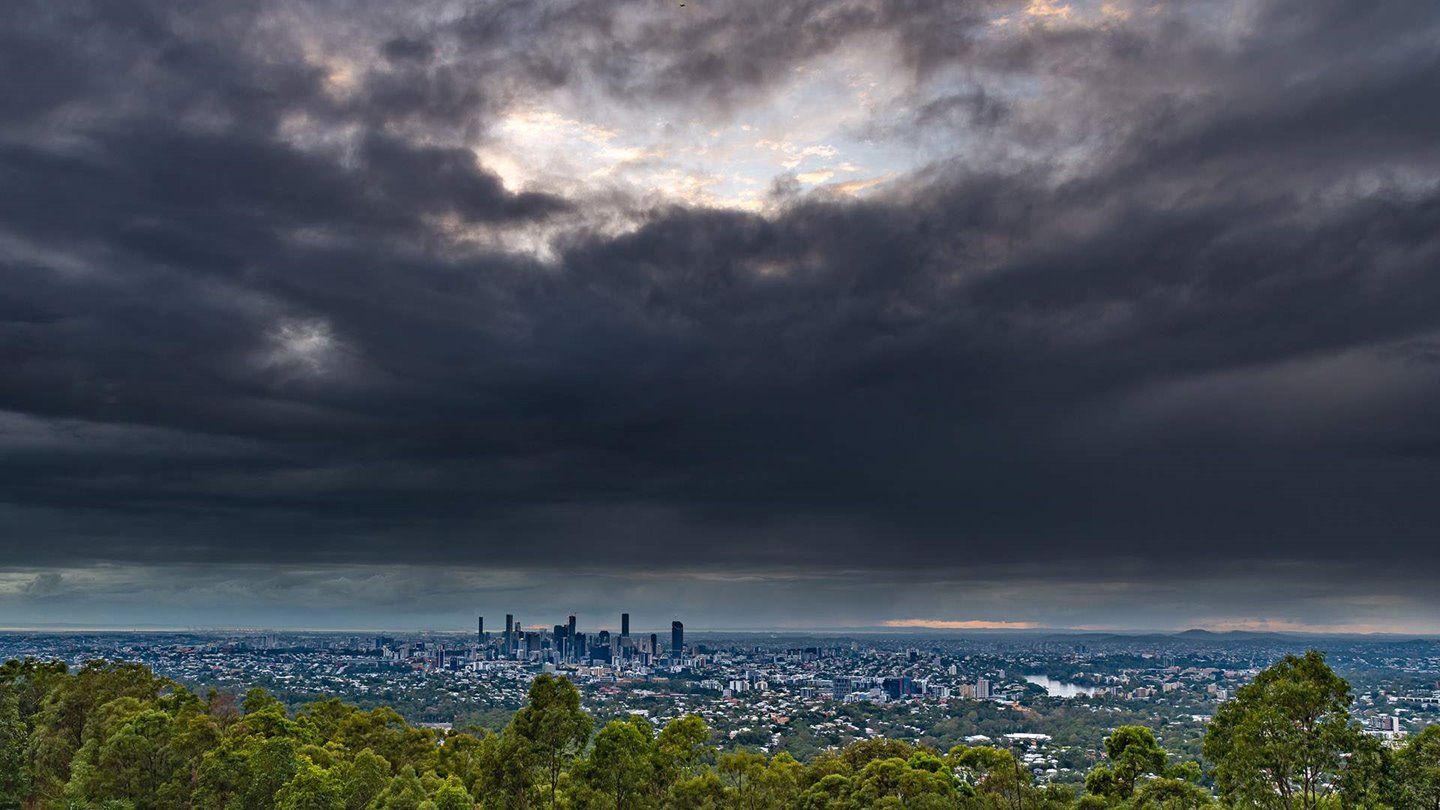Staying Safe During Tropical Cyclone Alfred

Current Queensland Government advice states that Tropical Cyclone Alfred will make landfall sometime between Friday evening (7 March) Saturday morning (8 March), anywhere between the Sunshine Coast and Grafton (in New South Wales).
When the cyclone makes landfall, it could potentially still be classed as a category 2 cyclone and therefore bring with it destructive wind speeds of up to 164 km per hour, storm surge and significant rainfall.
For public safety, some services like public transport and schools have been temporarily suspended.
You should remain vigilant and expect up to several days of dangerous weather and conditions starting on Thursday.
As Tropical Cyclone Alfred approaches land:
Dangerous weather will increase the closer the cyclone comes to approaching land. By now, we hope you have managed to finish your preparations which will help reduce the likelihood of injury or damage, including:
- Removing loose outdoor items that have the potential to become projectiles
- Saving useful resources like disaster dashboards and evacuation centre locations
- Creating or re-stocking your emergency kit
- Filling vessels, sinks and bathtubs with clean water in case your water supply is disrupted
- Preparing an indoor space for pets to sleep, eat and hygienically bathroom.
What to do during Tropical Cyclone Alfred:
The safety of you and other members of your household is the highest priority during a cyclone. To help ensure you are safe and comfortable, remember:
Don’t leave home unless instructed to or if staying puts you in danger | It is vitally important that you stay indoors during dangerous weather, unless you are ordered to evacuate or if staying inside puts you in danger. If you leave home, be aware of fallen powerlines and other dangerous debris. |
Monitor alerts and advice from emergency services | Regularly check your local ABC radio station, council disaster dashboard and other authoritative sources for information and advice. Follow directions and instructions from disaster responders and emergency services. |
Power off and unplug electric appliances | By powering off and unplugging electric appliances (e.g. televisions) from wall sockets, you reduce the likelihood that a power surge or water ingress will damage them. |
Move to a central room within the property | Central rooms that have no windows are the best place to seek shelter, with projectiles and broken glass less likely to reach you there if your windows or external doors are damaged. |
Keep fridges and freezers closed if you lose power | If you lose power, keep your fridges and freezers closed. This will help preserve the cold and hopefully avoid spoiling any food, depending on how long the power is out for. When power resumes, always inspect food to ensure it is safe to consume. |
Utilise ‘low power mode’ on your devices if they are low on battery | To ensure you always have a way of receiving alerts and advice about the cyclone, you should aim to keep your phone on. If your phone is running low on battery and you do not have a charge pack, try temporarily activating low power mode. |
Beware of the ‘eye of the storm’ | When the central part of a cyclone passes over you, it can be deceptive and appear as if the storm and danger have passed. Clouds might clear and rain might also stop. It is more likely that there is a ‘second half’ of the cyclone yet to come and that the dangerous weather is not over yet. |
Contact the SES on | Damaged or leaking roofs, fallen trees that have caused structural damage, flooding or other cyclone-related emergency assistance can be provided by the SES. In a life-threatening situation or if you are injured, always call triple zero (000). |
Take care of yourself so that you can remain vigilant | Dangerous weather might last for many hours after its initial onset. The effects of dangerous weather, like disruptions to power and water supply, can potentially last for several days. You should stay well-rested, hydrated and nourished to ensure you are clear-headed and energised. |
If you require medical assistance during Tropical Cyclone Alfred:
For urgent medical assistance in an emergency, always call triple zero (000) first.
For non-urgent medical advice, you can call 13 HEALTH (13 43 25 84).
Should you be experiencing stress or feelings of anxiety during this period, support is still available to you via:
- 13 YARN (for Aboriginal or Torres Strait Islander persons) – 13 92 76
- Beyond Blue – 1300 22 4636
- Community Recovery Hotline (24/7 information and support) – 1800 173 349
- Community Recovery Lifeline Hotline (confidential specialist disaster counselling) – 1800 116 671
- Lifeline crisis hotline – 13 11 14.
Maintenance and office availability during Tropical Cyclone Alfred:
Our offices will be closed Thursday 6 March and Friday 7 March, however, you will still be able to contact us via phone during business hours (9:00 am to 4:00 pm, Monday to Friday).
Please be mindful that our staff members also live in Southeast Queensland. We will do our best to respond to calls, however, we have limited availability and your call might not be answered or responded to immediately.
During the cyclone period, our staff cannot assist with disaster responses, such as tarping roofs and repairing windows. If you require this assistance, please contact the State Emergency Service (SES) by phoning 132 500 or online at https://132500.qld.gov.au/ses-webapp.
If your property is damaged, please also report it to your Housing Officer once you are safe and, if possible, during office hours.
If you need to leave your property
If you are ordered to evacuate your property, we recommend informing your loves ones as well as your Housing Officer once you are safe.
